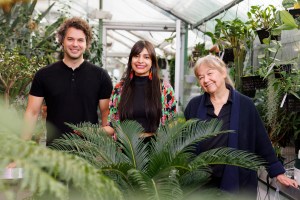Campus & Community
-
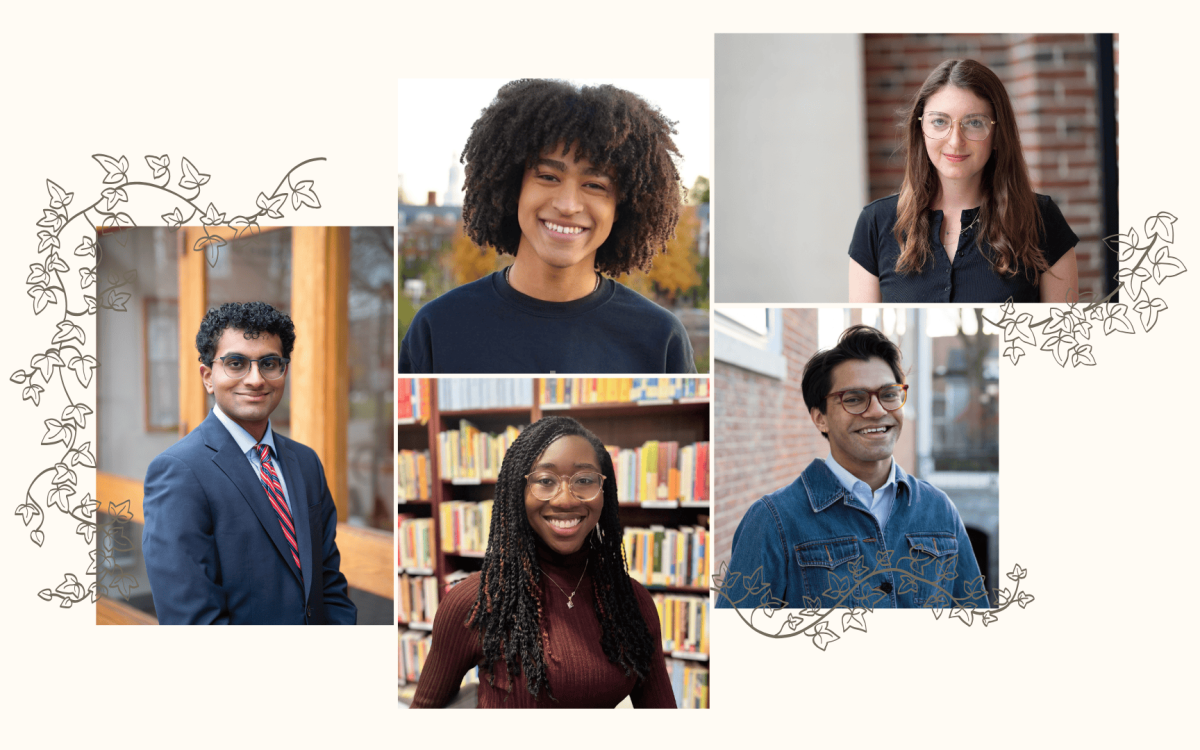
5 from Harvard named Marshall Scholars
Awards for 4 students, 1 alumna — more than any other institution — support graduate studies in the United Kingdom
-
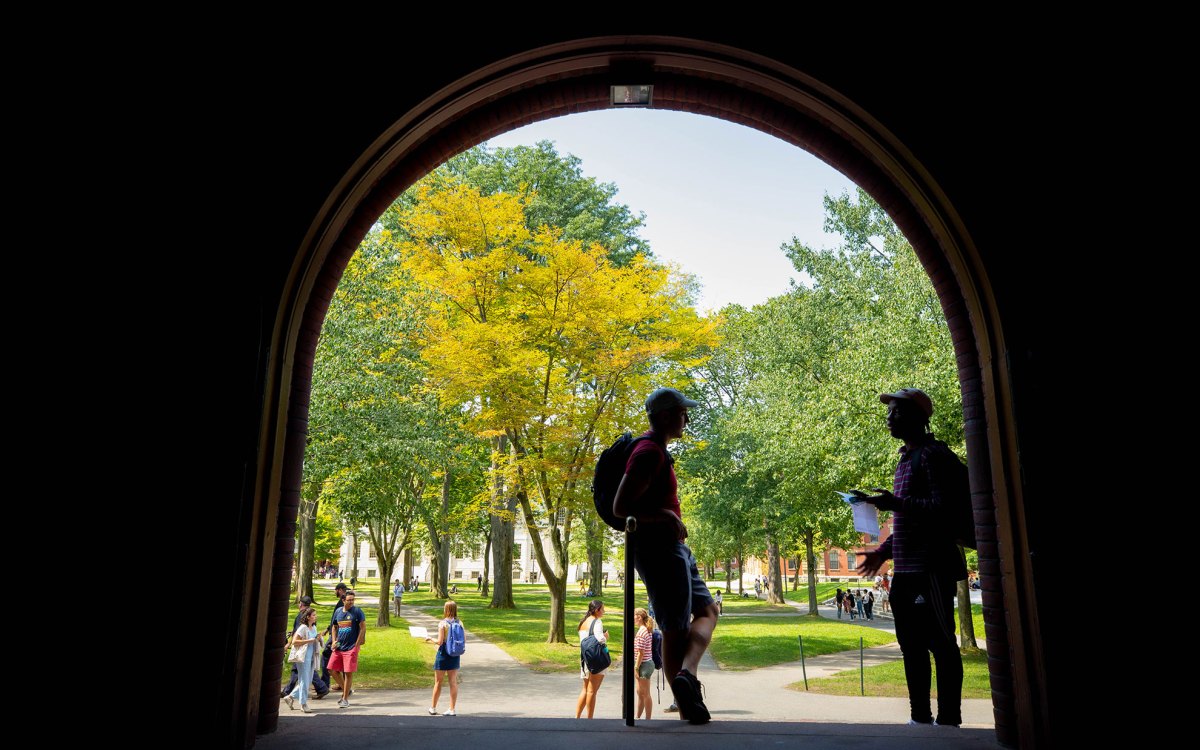
‘Our students are seeking not just to coexist, but to understand’
8 projects win Building Bridges grants to spark constructive dialogue on campus
-
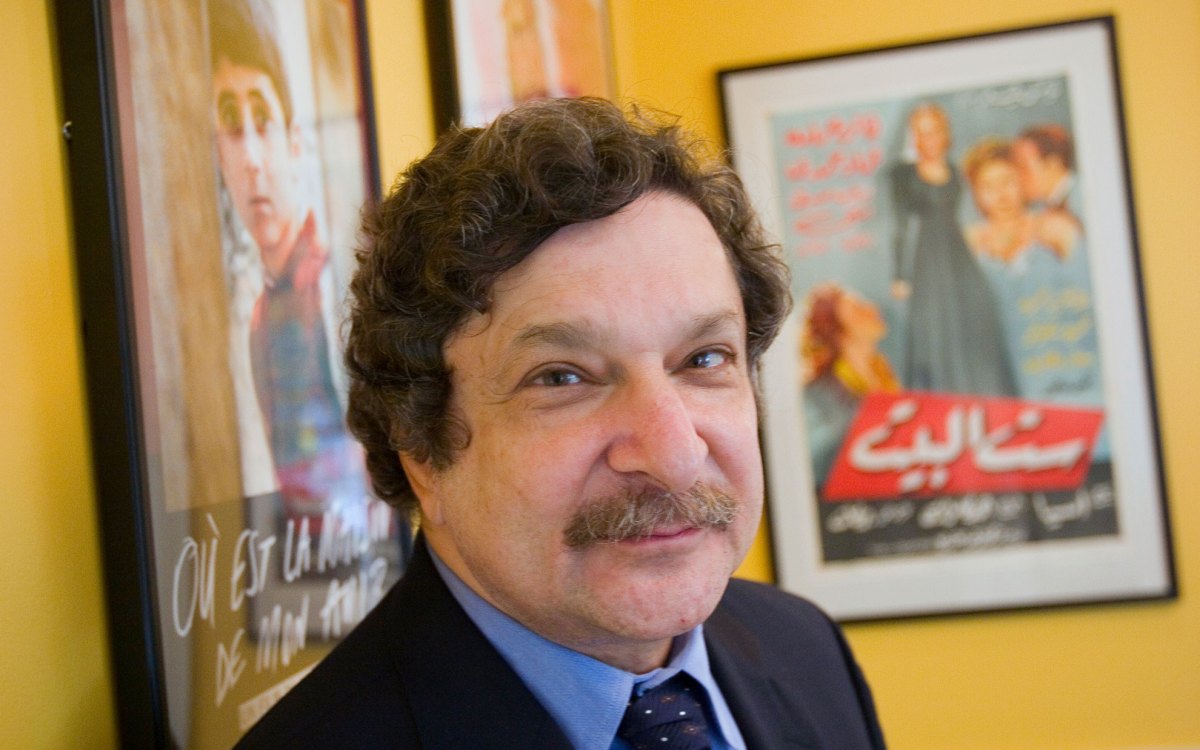
Roy Parviz Mottahedeh, 84
At a meeting of the Faculty of Arts and Sciences on Dec. 2, 2025, the following tribute to the life and service of the late Roy Parviz Mottahedeh was spread upon the permanent records of the Faculty.
-
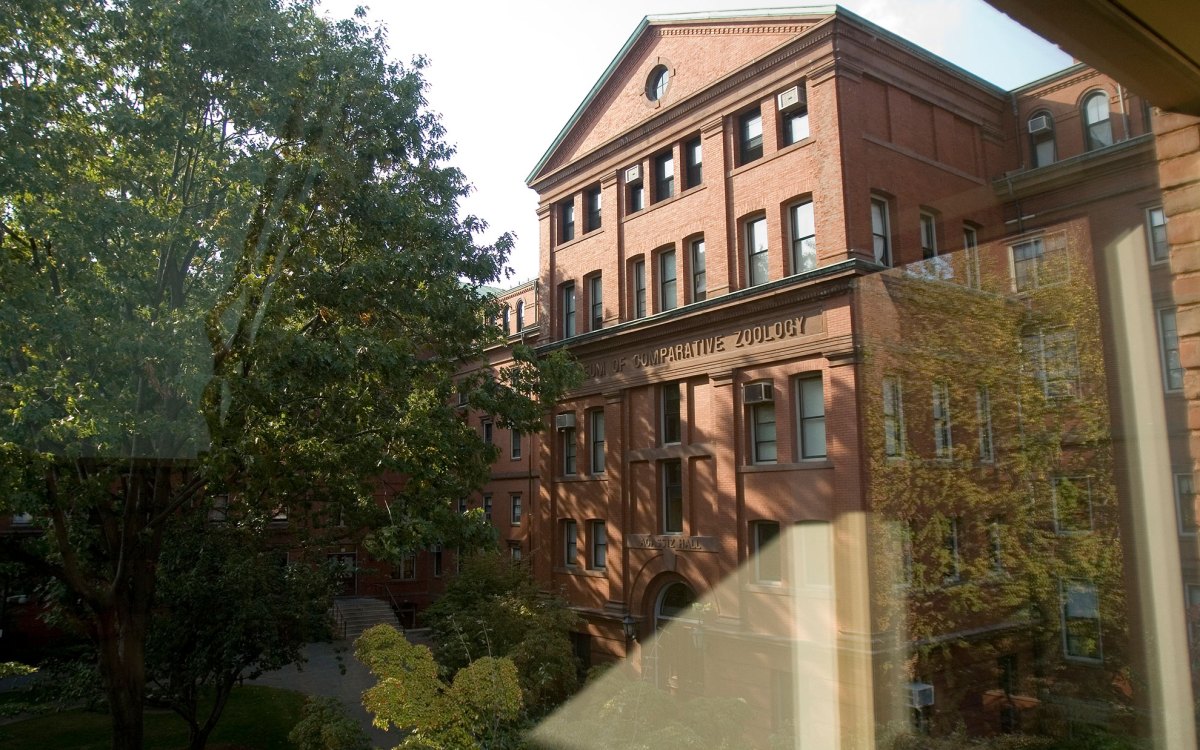
Karel Frederik Liem, 73
At a meeting of the Faculty of Arts and Sciences on Dec. 2, 2025, the following tribute to the life and service of the late Karel Frederik Liem was spread upon the permanent records of the Faculty.
-
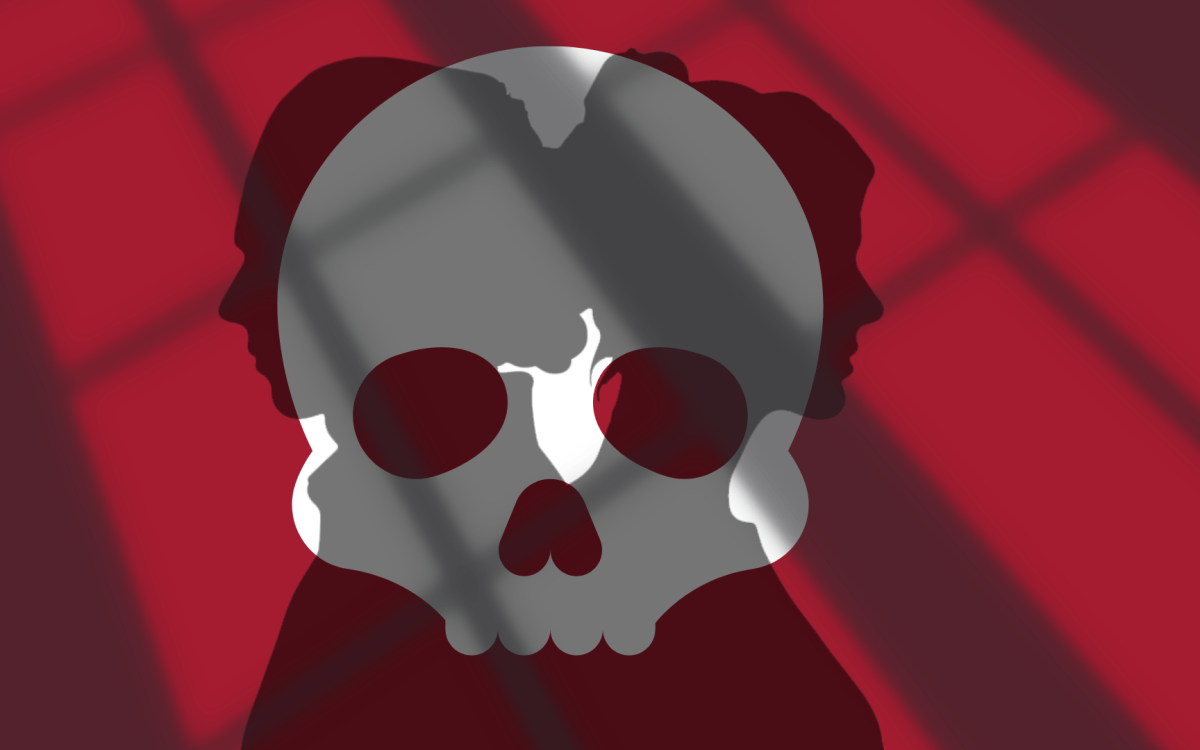
‘Goodnight, sweet prince’
New holiday film reimagines couple’s searing grief over death of young son, how it inspired creation of ‘Hamlet’
-
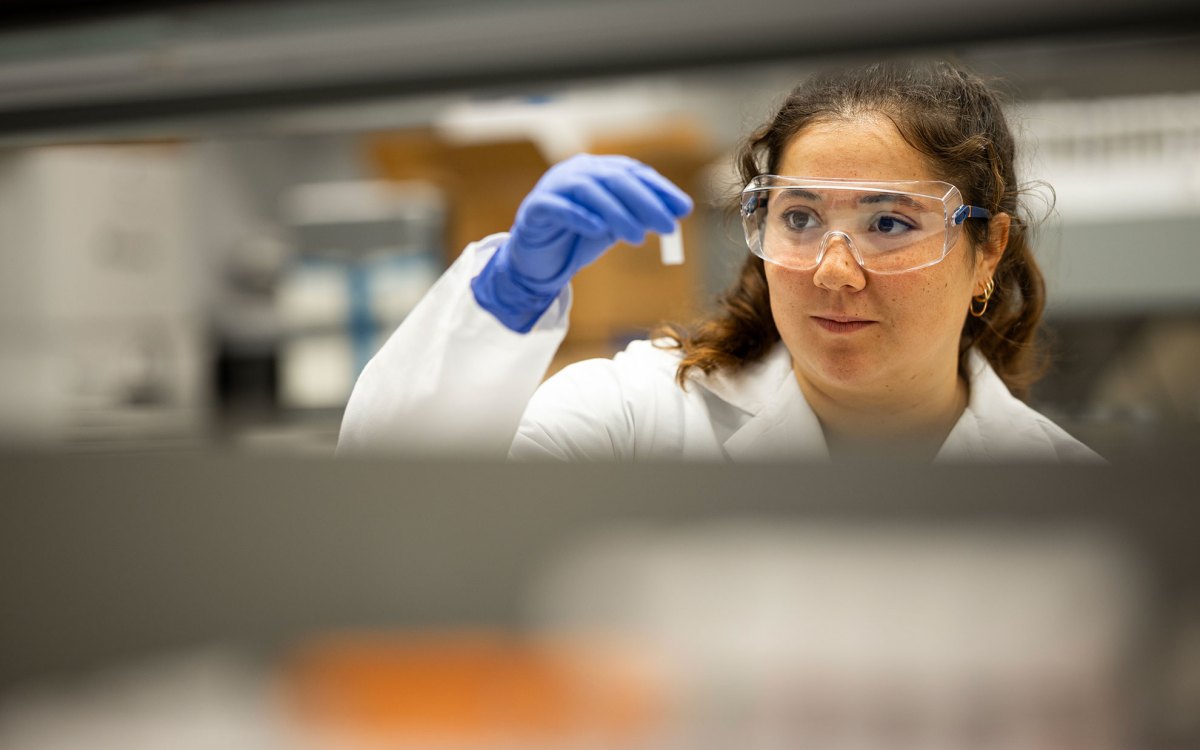
On the sea or in the lab, Olivia Hogan-Lopez knows the value of perseverance
Senior is researching how PFAS chemicals impact humans and the environment
-
Dunster, Mather dining halls to be renovated
The dining halls in Dunster and Mather houses are slated for major renovations this summer. They are the last of the 12 House dining halls to undergo significant restructuring. Harvard University Dining Services (HUDS) will begin renovations on June 13 the renovations are expected to conclude in late August, according to Robert Leandro, assistant director of residential dining.
-
The moral essence of leadership
Nannerl Keohane, past president of Duke University and Wellesley College, and the newest member of the Harvard Corporation, offered an insiders guide to leadership when she delivered The Power of Leadership at this years Edward L. Godkin Lecture Feb. 16 at the Kennedy School of Government.
-
Shorenstein Center announces finalists for the 2005 Goldsmith Prize for investigative reporting
Six entries have been chosen as finalists for the 2005 Goldsmith Prize for Investigative Reporting, awarded each year by the Joan Shorenstein Center on the Press, Politics and Public Policy at the Kennedy School of Government (KSG). The winner of the $25,000 prize will be named at an awards ceremony on March 22 at the Kennedy School.
-
Science partners
John Ribeiro, a ninth-grader at Cambridge Rindge & Latin School (CRLS), listens in polite silence while Brian Murphy pitches him an idea for a science project.
-
Bridge Builders unites organizers
A group of grassroots organizers from around the world spent last week at Harvards John F. Kennedy School of Government, sharpening their skills and making connections with academic experts, Harvard students, and other grassroots leaders.
-
Jada Pinkett Smith is Harvard Foundation’s ‘Artist of the Year’
Distinguished actor and singer Jada Pinkett Smith has been named the 2005 Artist of the Year by the Harvard Foundation of Harvard University. Pinkett Smith, the unanimous choice of the selection committee, will be awarded the foundations most prestigious medal at Harvards annual Cultural Rhythms ceremony on Saturday (Feb. 26).
-
Masatoshi Nagatomi
At a Meeting of the Faculty of Arts and Sciences February 15, 2005, the following Minute was placed upon the records.
-
The accidental ‘best friend’
Harvard researchers studying Siberian foxes have uncovered evidence that the ability to interpret human expressions and gestures that helped transform the wild wolf into humankind’s cooperative “best friend” may have…
-
Cool brown dwarf may give birth to planets
Solar systems like our own may be forming around dim stars scattered all over the Milky Way. It’s possible that some of these systems could harbor planets with water and…
-
Zeta-Jones misses parade
Asked during her press conference if her husband Michael Douglas, Hasty Pudding Man of the Year 1992, had given her any advice about how to comport herself during her own ceremonial ordeal, Catherine Zeta-Jones, the 2005 Woman of the Year, replied: Whatever they do, just give it right back to them, honey.
-
This month in Harvard history
February 1950 – A capacity Sanders Theatre crowd hears Eleanor Roosevelt discuss “The World Struggle for Human Rights,” as guest of Harvard’s United Nations Council. She urges the U.S. to…
-
And alone came Tim…
Yes! Hasty Puddings 2005 Man of the Year, the delightful and affable Tim Robbins, will be at the Hasty Pudding Theatre tonight to enjoy the opening of Terms of Frontierment. There will be a champagne reception for Robbins at 7 p.m., followed by a roast of and then presentation of the Pudding Pot to the sprightly star at 8:10. At 8:30, Robbins will field the press, and the opening night show follows immediately thereafter.
-
Police reports
Following are some of the incidents reported to the Harvard University Police Department (HUPD) for the week ending Feb. 15. The official log is located at 1033 Massachusetts Ave., sixth floor.
-
President Summers holds office hours
President Lawrence H. Summers will hold office hours for students in his Massachusetts Hall office on the following dates:
-
Refugees give glimpse of human rights, prisons in North Korea
A one-time South Korean prisoner of conscience cautioned against using human rights as a political weapon against North Korea Thursday (Feb. 10) despite new details of horrific conditions in the communist nations political detention system.
-
Talk to the hand (it’s for a good cause)
Bakang Komunyane (from left), Rangarirai Miambo, Saritha Komatireddy, Monica Soni, and Aimee Miller practice a dance routine in preparation for Changing the Tide, a performance to raise funds for areas devastated by the recent tsunami in South Asia. The event takes place Saturday (Feb. 19), at 8 p.m. in Sanders Theatre. For tickets, call the Harvard Box Office at (617) 496-2222.
-
The Big Picture
Five years ago, Jennifer Shultis was a competitive equestrienne who rarely ran, had never mountain biked, and had what she calls a normal fear of heights.
-
Newsmakers
Real Fundación de Toledo awards Márquez prize Arthur Kingsley Porter Research Professor of Romance Languages and Literatures Francisco Márquez was awarded the Premio Especial by the Real Fundación de Toledo…
-
In brief
Film Archive to remember Malcolm X this month In memory of the 40th anniversary of the assassination of Malcolm X this month, the W.E.B. Du Bois Institute for African and…
-
Research in brief
New treatment for chronic myelogenous leukemia Using rational drug design strategies, investigators at Dana-Farber Cancer Institute and Novartis Pharmaceuticals in Basel, Switzerland, have created a targeted therapy for chronic myelogenous…
-
No consolation
Crimson goalie Dov Grumet-Morris 05 makes a diving save on a shot by B.C.s Stephen Gionta in the consolation Beanpot game at the FleetCenter on Feb. 14. The Eagles beat the Crimson, 4-1.
-
Sports in brief
Men’s squash nabs Ivy League title The No. 2 Harvard men’s squash team captured its 36th outright Ivy League title with a 6-3 win over visiting Yale this past Saturday…
-
Make it seven
The pace of Tuesdays (Feb. 15) womens Beanpot championship game at Northeastern Universitys Matthews Arena was decidedly fast and frantic. For the Boston College womens hockey team, the whole ordeal mustve been a bit infuriating as well.
-
Older doctors less likely to follow current standards for care
Harvard Medical School (HMS) researchers report in the Annals of Internal Medicine that older physicians may be less likely to deliver currently accepted standards of care. The studys findings show that the number of years a doctor has been in practice may decrease the likelihood of the doctor providing technically appropriate care.
-
FAS, HLS to renovate Hemenway Gymnasium
Harvard Universitys Faculty of Arts and Sciences (FAS) and the Harvard Law School (HLS) will collaborate to renovate Hemenway Gymnasium in a project slated to run from late May to September of this year. The two schools will split the cost of the top-to-bottom interior rehabilitation of the 28,000-square-foot recreational fitness facility, which will be closed during construction.
-
Sever slated for major facelift
Sever Hall, the Henry Hobson Richardson-designed building that anchors the east side of Tercentenary Theatre in Harvard Yard, will undergo a major exterior restoration. Also, the buildings fourth floor will be renovated to create space for the Visual and Environmental Studies (VES) film program. Work is slated to begin in June and conclude in September.
-
Key to dental enamel formation found
Scientists at Harvard-affiliated Forsyth Institute have found and replicated a key aspect of the mechanism by which dental enamel is formed.
-
In China, gems used as tools millennia earlier than thought
Researchers have uncovered strong evidence that the ancient Chinese used diamonds to grind and polish ceremonial stone burial axes as long as 6,000 years ago – and incredibly, did so with a level of skill difficult to achieve even with modern polishing techniques. The finding, reported in the February issue of the journal Archaeometry, places this earliest known use of diamond worldwide thousands of years earlier than the gem is known to have been used elsewhere.
-
Wuthering Hall
Memorial Hall looks decidedly spooky as a combination of midwinter light and shadow performs its haunting visual magic.
-
Office for the Arts announces spring grants recipients
More than 1,800 students will participate in nearly 60 projects in dance, music, theater, and multidisciplinary genres at Harvard this spring, sponsored in part through funding from the Office for the Arts (OFA). Selected by the Council on the Arts at Harvard, the projects include visual art and multimedia pieces, theater productions, concerts, and dance performances, among others.


